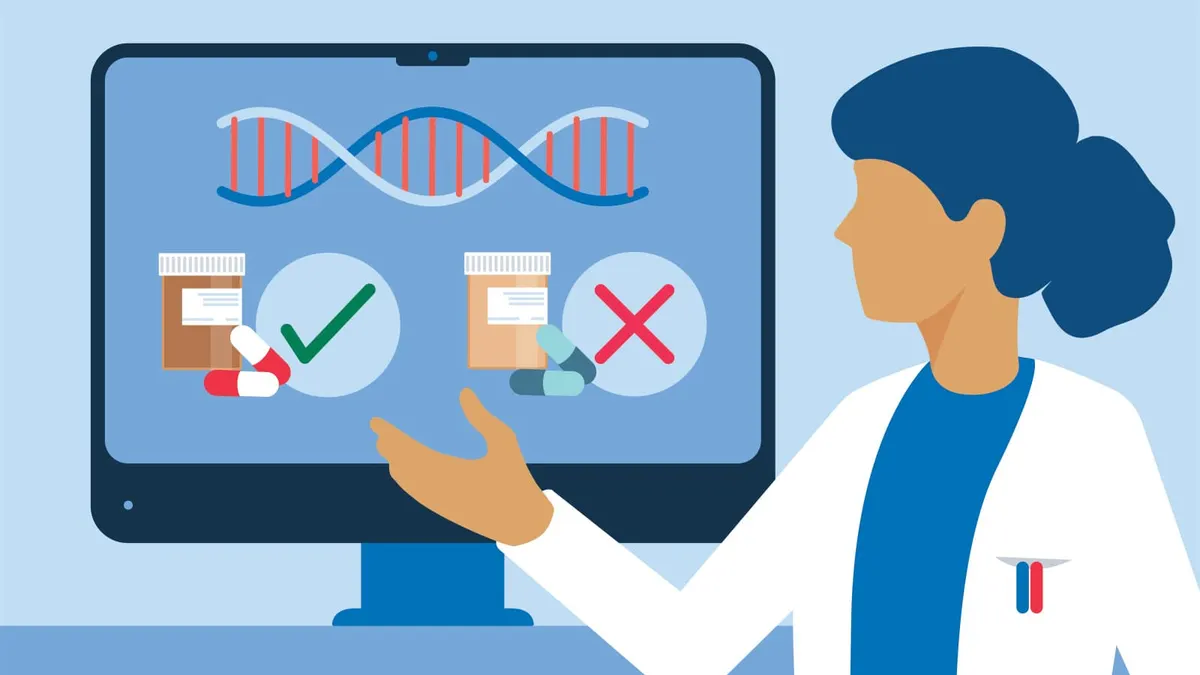In the high-stakes field of pharmacogenomics, precision and accuracy are non-negotiable. Evidence-based databases in pharmacogenomics are indispensable tools that enable labs to interpret genetic variants confidently and accurately. But how can labs integrate these resources effectively to deliver reliable and timely annotations?
The importance of precision in PGx interpretation
Pharmacogenomic testing is designed to reveal how an individual’s genetic makeup can influence their response to medications, offering personalized therapeutic options that can enhance efficacy and minimize adverse effects. But the success of this approach hinges on the correct interpretation of genetic variants. The sheer complexity of the human genome, combined with the variability in drug-gene interactions, makes it crucial for clinicians and scientists to rely on validated, up-to-date resources. Misinformed or incomplete interpretations can lead to suboptimal drug choices, ineffective dosing, or serious safety concerns.
Accurate PGx interpretation requires more than raw genetic data—it demands a multidisciplinary approach that integrates trusted and continually updated resources. Below are five PGx sources that provide essential insights that, when combined, offer a comprehensive framework for understanding gene-drug interactions.
1. FDA: PGx labeling and drug information
2. CPIC: How to translate PGx data into therapeutic insights
3. DPWG: Global perspectives on PGx insights
4. PharmVar: Harmonizing pharmacogenomic variant nomenclature
5. PubMed: Access the latest PGx research
The challenge: How to integrate these resources for comprehensive PGx annotation
Currently, most laboratories engaged in PGx interpretation must consult a variety of resources, databases, and guidelines to comprehensively annotate test results. While these resources are invaluable, they are often siloed, leading to challenges in consistency and efficiency. Laboratories must manually piece together information from multiple sources, which can be fragmented or even outdated. On average, manual PGx annotation can take hours—even days—making it difficult to deliver reliable and timely annotations Furthermore, discrepancies between databases or inconsistent variant nomenclature can further complicate clinical decision-making.
This fragmented approach underscores the need for a single, authoritative knowledge base that centralizes all relevant PGx resources. A unified platform that integrates expert-curated data from multiple sources, continuously updated for accuracy and relevance, would streamline the annotation process. Such a resource would eliminate redundancy, improve consistency, and provide labs with a reliable foundation for interpreting PGx test results. This would not only enhance efficiency but also increase the utility of pharmacogenomic testing, ensuring that care is informed by the most up-to-date and accurate genetic insights.
The solution: QIAGEN Pharmacogenomic Insights (PGXI)
QIAGEN Pharmacogenomic Insights (PGXI) is a new knowledge base designed to help scientific and translational researchers better understand how an individual's genetic make-up influences their response to medications. Providing a streamlined and automated approach to how labs can efficiently and confidently produce evidence-backed insights for pharmacogenomic markers, PGXI enables faster, more precise drug development and delivery.
PGXI is a new knowledge base solution within PGx built upon a legacy platform used to deliver more than 1.6 million PGx annotations for more than 250 clinical research laboratories. The knowledge base contains data from all established pharmacogenomic information sources, including the FDA, CPIC, DPWG, PharmVar, and curated articles from the biomedical literature database PubMed, to provide accurate, up-to-date evidence in one centralized location. Users can submit pharmacogenomic test results to PGXI and rapidly query and identify relevant gene-drug associations and conditions linked to specific genotypes.
PGXI is transforming precision medicine by dramatically speeding up the process of analyzing how a person’s genes affect their response to medications. Within minutes, users can retrieve a custom output of relevant information, including:
- Relevant conditions associated with queried genes of interest;
- Relevant drug-gene associations;
- Curated literature evidence for alleles in question.
There's now an easier and faster way to translate PGx data into insights
For labs and pharmaceutical companies needing an easier and faster way to translate complex pharmacogenomic data into evidence-backed insights to inform drug delivery and development, QIAGEN PGXI provides a better a way forward.
→ Learn more about PGXI and request a free trial here.











